Both was and were are correct forms of the verb “to be.” However, when to use was vs. were depends on whether you’re talking about something imaginary or something real.
Hypothetical situations need the subjunctive mood, so you should use were regardless of the speaker’s point of view. However, situations that actually happened in the past need the indicative mood. This means subject-verb agreement comes into play, so you should use was with I/he/she (She was here) but were with you/we/they (You/we/they were here).
When to Use Was vs. Were at a Glance:
Should you use was or were? This is a grammar question that even native English speakers struggle to answer correctly. Let’s look at the easiest way to know the difference between was and were. What’s more, you’ll see was vs. were example sentences and learn how to correctly use this irregular verb.
| Indicative Mood: Past tense of the verb “to be” | I was | you were | he was | she was | it was | we were | you were | they were |
| Subjunctive Mood: Hypothetical situations with the verb “to be” | I were | you were | he were | she were | it were | we were | you were | they were |
In this way, the difference between was and were comes down to describing something that actually happened in the past vs. an imaginary situation that never happened at all. Moreover, it also depends on who is speaking. Finally, subject-verb agreement also comes into play.
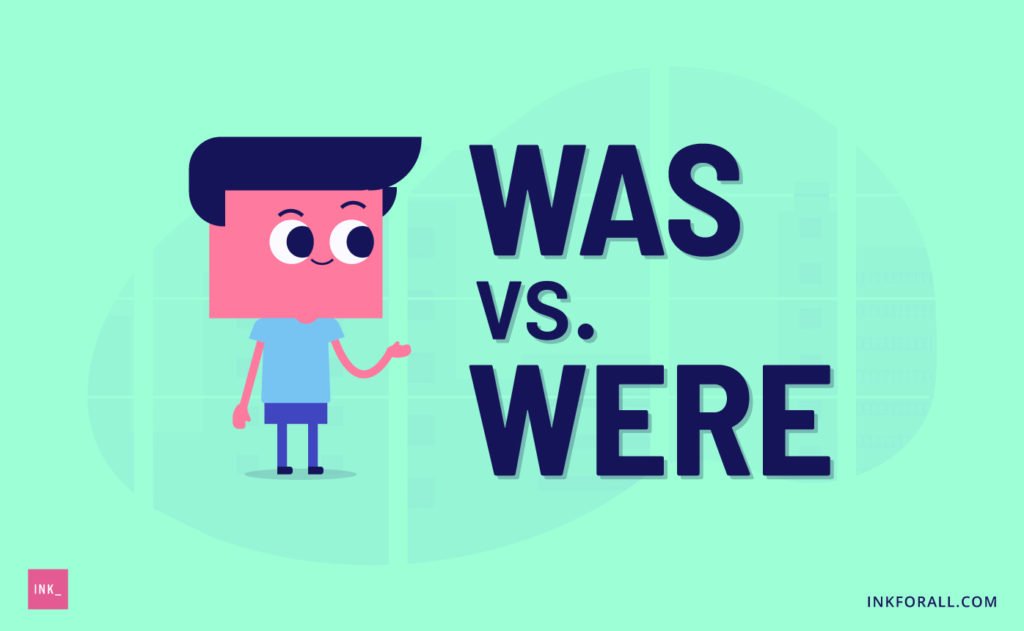

3 Easy Steps That Tell you When to use Was vs. Were
1. Ask yourself these questions:
- Did it really occur in the past?
- Or, are we talking about an imaginary situation that can’t be real?
2. If it actually occurred in the past:
Use was with the first and third person singular points of view:
- I was
- She was
- He was
- It was
- You were
But, use were with the second person (you) or third person (they) plural points of view. This helps ensure correct subject-verb agreement.
- You were
- They were
3. If the situation is imaginary and can’t be real:
Were is the only correct option. As such, use were for every point of view.
[example] In the off-chance that we were lottery winners, we’d donate at least half of the sum to science.
Why Second Conditional Uses Were?
A second conditional, or type 2 conditional sentence, describes hypothetical or imaginary situations, like dreams and wishes. In some instances, those situations could happen in the future, but they most likely won’t.
Below is the structure for a second conditional statement:
In the statement above, we used “were” instead of “was.” That’s even if the latter is considered the proper past simple form of the verb to be to go with the pronoun “I.”
We do this because we’re talking about an imaginary situation. No one can reverse time and be a child again, right? That’s just impossible. By saying “If I were,” we’re changing the mood of the verb to be from indicative to subjunctive.
The indicative mood describes real situations or facts. On the other hand, the subjunctive mood describes situations that are hypothetical or are not real. For second conditional statements, we always use were.
“Was” Usually Refers to the Past
When you see the word “was,” we’re most likely talking about something that previously occurred.
Specifically, was indicates that the first and third singular person points of view acted in the past. For this reason, we use was with the indicative mood.
In other words, the rule for was/were typically comes down to singular vs. plural when using the past tense of the verb “to be.”
However, as with most grammatical rules in English, there is an exception here.
Which is Correct: “If I Was” or “If I Were”
Most statements that include if are subjunctive. In these cases, we use were. Notwithstanding, there is one exception for the first person point of view: I.
On one side, we have was in the indicative mood to indicate reality.
On the other, we have were in the subjunctive mood to refer to imaginary or hypothetical situations.
But, there is also a third option in the middle: what should you use when you aren’t sure if something is real or imaginary?
In this case, “If I was” is the grammatically correct choice. In other words, when it’s not clear if something is real or hypothetical, “I was” is correct.
In the above example, the speaker isn’t sure if they made a mistake or not. This situation might be imaginary, but it might also be real. As a result, the speaker can’t use were since this option is for purely imaginary situations.
Therefore, we use “If I was” to show this doubt grammatically.
Now, let’s compare the “If I was vs. were” in action:
The above example expresses a purely imaginary situation: I don’t live in Los Angeles, so I don’t drive to work. I show that the scenario isn’t real by using the verb “to be” with the subjunctive mood were.
Conversely, the above example expresses doubt. For instance, I did live in Los Angeles in the past, but I don’t anymore. Additionally, I used to drive, but I don’t anymore.
If I don’t remember exactly when I moved or when I stopped driving, I should use the if I was construction to express this doubt to my audience.
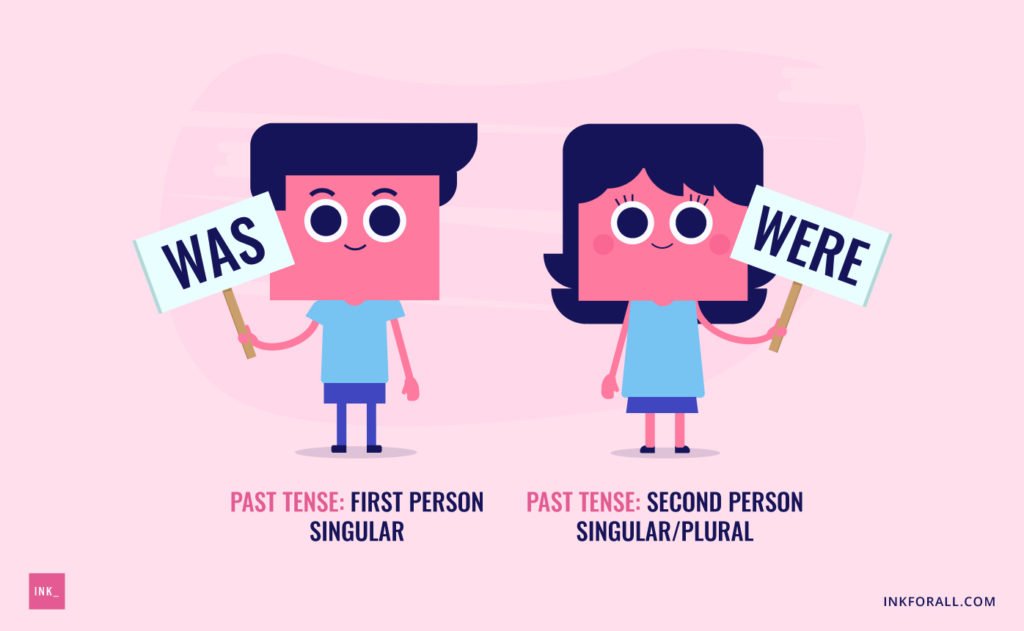

When “Were” is Past Tense and When it’s Subjunctive
Was tends to hang out exclusively with the past tense in the indicative mood. However, were can express the real past tense in the indicative mood or an imaginary situation in the subjunctive mood. How do you tell the difference?
Were and Past Tense
The trick here is to associate were and the past tense with subject-verb agreement. In other words, whether you should use was vs. were depends on who is speaking.
For example, use was with these points of view:
- First person singular = I was
- Third person singular = he/she/it was
However, use were with these points of view:
- Second person singular = you were
- Second person plural = you (all) were
- First person plural = wewere
- Third person plural = theywere
Should I use Was or Were with There?
Whether to use was or were with therehas to do with subject-verb agreement. When a sentence starts with the word there, the words following the verb are typically the subject. For example, in the sentence “There are oranges on the table,” the subject is oranges. If the subject is singular, then you should use the verb was (“There was an orange…“). Yet, if the subject is plural, then the correct verb to use is were (“There were oranges…“).
- Subject-verb agreement
- Whether you’re using the subjunctive mood
- Point of view
Were and the Subjunctive Mood
Subjunctive what? Unless you’re a diehard grammarian or advanced polyglot, you’ve probably never heard of subjunctive mood. In simple terms, the phrase describes a verb tense we associate with unreal statements or questions.
Essentially, whereas most statements reveal something that is currently happening or has previously happened, a subjunctive sentence refers to something that hasn’t actually happened. That may be a want, a wish, or a suggestion.
- Demands
- Proposals
- Desires
- Wishfulness
- Hypothetical situations
- Possibilities
In both written and spoken English, subjunctive mood usually appears by an indicative verb such aswant, wish, desire, suggest, or recommend. What’s more, sentences that express possibilities often include the word if.
When creating a subjunctive mood, the traditional singular/plural rules for was/were don’t apply. In fact, when it comes to the subjunctive mood, there’s an easy rule for choosing was or were: always choose were.
- I were
- You were
- He/she were
- It were
- They were
- This were
- That were
You’ll note that none of these examples describes a current reality. Instead, they all describe hypothetical, desired, or imaginary situations. Therefore, we use were regardless of whether the subject is singular or plural to make this departure from reality clear.
Which is Correct Grammatically: If I Was or If I Were?
Both of the phrases if I was and if I were are grammatically correct, but they mean very different things. Therefore, the difference between if I was and if I weredepends on what you are trying to say. First, use if I was for something that might be real, or to express doubt when you’re not sure if something is true (If I was late responding to you, I apologize). Second, use if I were to express something unreal, imaginary, or hypothetical (If I were a dragon…”
Often, the word if introduces subjunctive mood. When a sentence includes the phrase if I was orif I were, grammatists tend to label this subjunctive mood. That means the sentence refers to something that goes against, or is contrary to, the current truth. In other words, the sentence may express a desire, wish, possibility, or hypothetical situation. For subjunctive statements or questions, the grammatically correct phrase is “If I were“.
Was and Were Sentence Examples
Here are examples of was vs. were in a sentence:
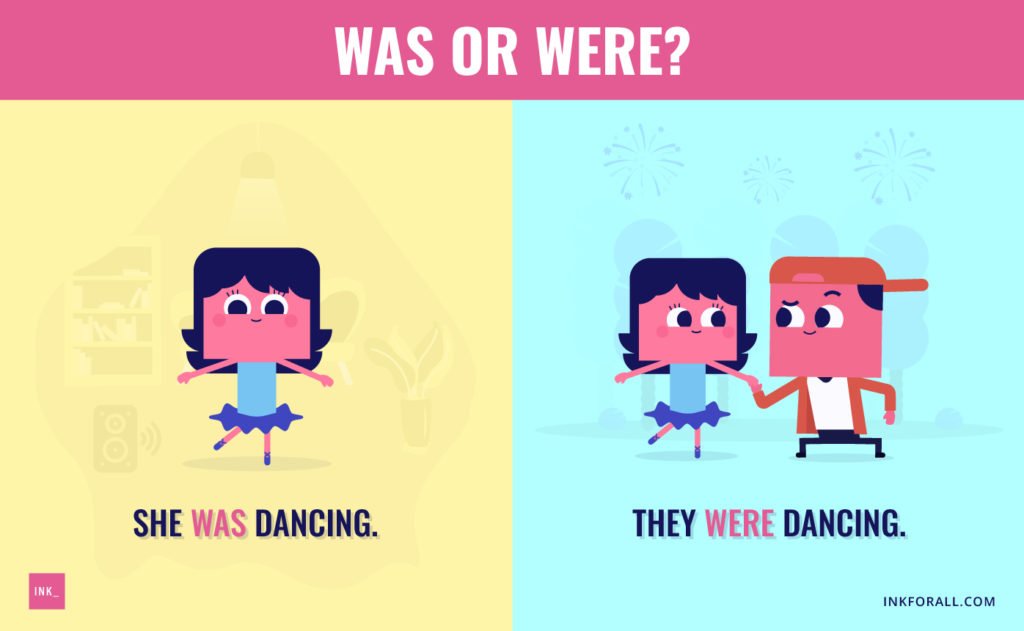

Can you say if I Were?
You can say if I were. In fact, were is typically the correct conjugation of the verb to be in this context. Because this phrase begins with the word if, it’s subjunctive mood. That’s another way of saying it describes a hypothetical or unreal situation. In subjunctive sentences, the correct form of to be is always were.
Is If I Were a Boy Grammatically Correct?
If I were a boy is grammatically correct. This construction is correct because it reflects subjunctive mood. In other words, the phrase refers to a hypothetical or unreal situation. In this particular hypothetical, the writer is speculating about what might happen if her gender were different. When you write a sentence using subjunctive mood, you should always conjugate the the verb “to be” as were— regardless of the speaker’s point of view.
Were vs. Was: a Matter of Style?
It’s also worth noting that more and more writers are opting to use was instead of were in subjunctive sentences. This is particularly true in informal prose. It’s led some grammarians to speculate about the subjunctive were eventually becoming obsolete.
A Brief Was/Were Recap
By following a few basic rules, understanding when to use was and were doesn’t have to leave you with a headache.
- When conjugating the verb to be in the past tense, use was when writing in first or third person singular. Use were when writing in second person singular or plural or first-person or third-person plural.
- Use were when crafting sentences that involve hypothetical situations, speculation, or wishes. This is known as subjunctive mood and is often identified by the inclusion of the word if.
- If a sentence starts with the word there, use was if the subject is singular. Use were if the subject is plural.
- Was and were are past tense versions of the verb to be. They are both correct, depending on the context.
- When you want to talk about an imaginary, hypothetical, or unreal situation, use the subjunctive mood were across the board (If I were a dinosaur…).
- When you want to talk about reality, follow the normal conjugation for the verb “to be” in the past tense. Use the indicative mood was for I/he/she (She was here) but were with you/we/they (You/we/they were here).
Practice Your Grammar Skills With These Was and Were Exercises
Was and Were Question #1
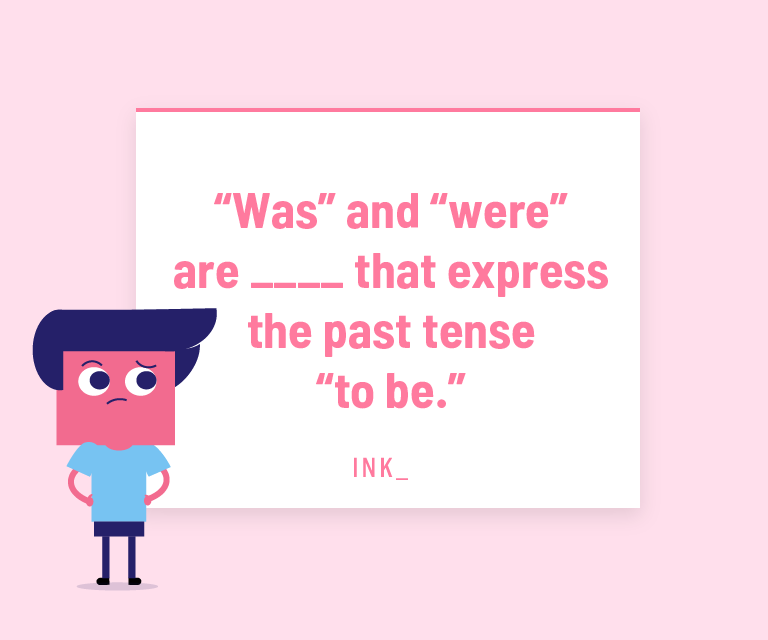

The answer is A. “Was” and “were” are past tense versions of the verb “to be.”
Use or When Question #2
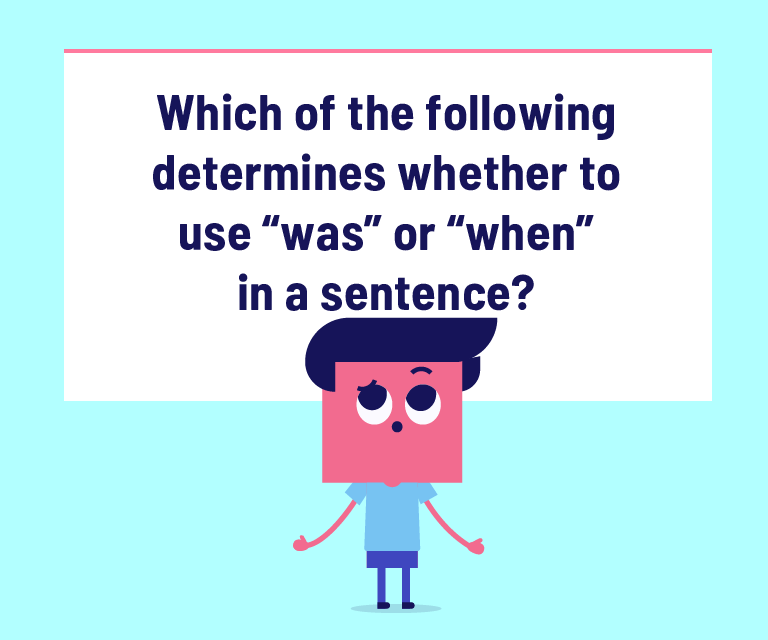

The answer is D. All the factors outlined above can determine whether to use “was” or “when”.
Was vs. Were Question #3
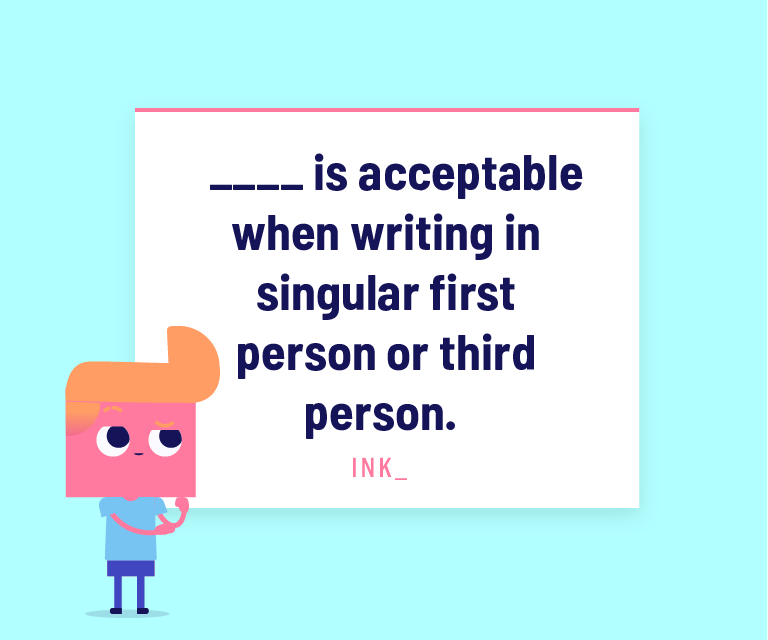

The answer is WAS. “Was” is the correct choice when writing in first person or third person (he, she, it) singular.
Were vs. Was Question #4
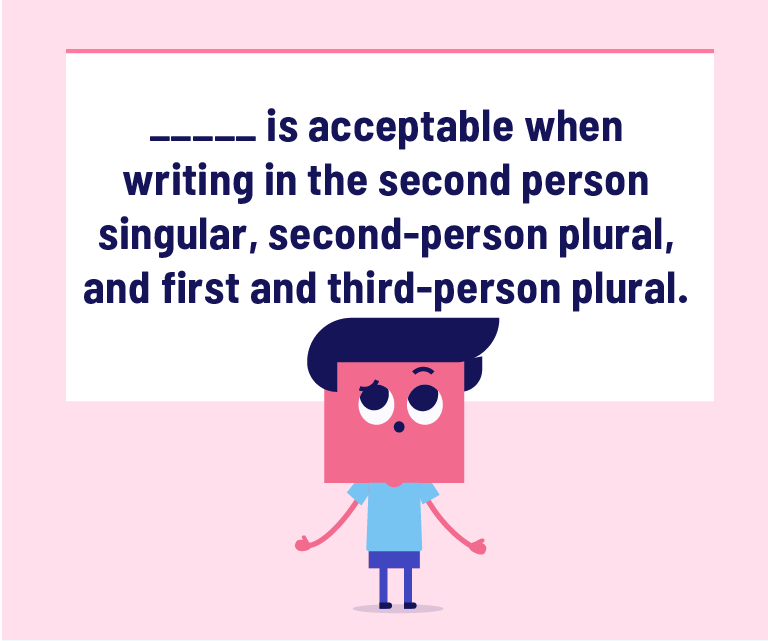

The answer is WERE. “Were” is correct when writing in the second-person singular, second-person plural, and first and third-person plural.
Was and Were Question #5
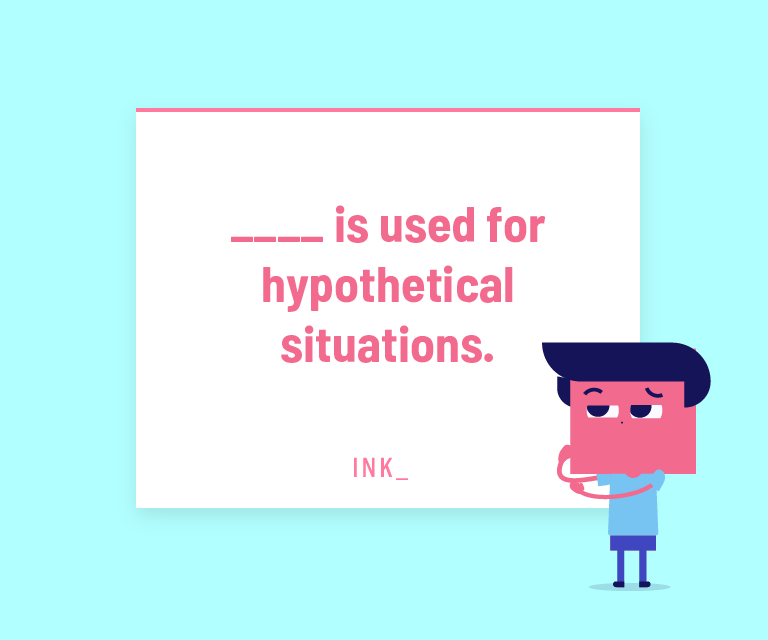

The answer is WERE. Hypothetical situations need the subjunctive mood. So “were” is appropriate.
Was vs. Were Question #6
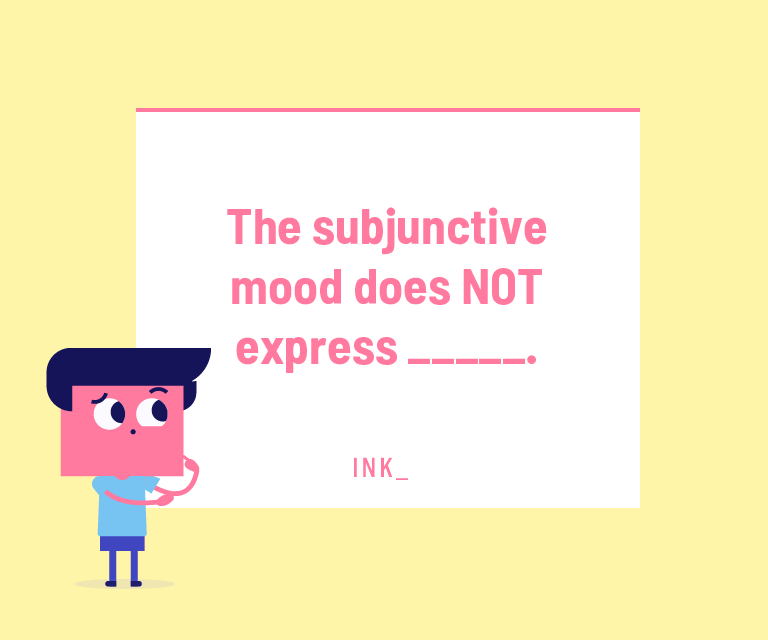

The answer is C. A subjunctive sentence refers to something that hasn’t happened.
Were vs. Was Question #7
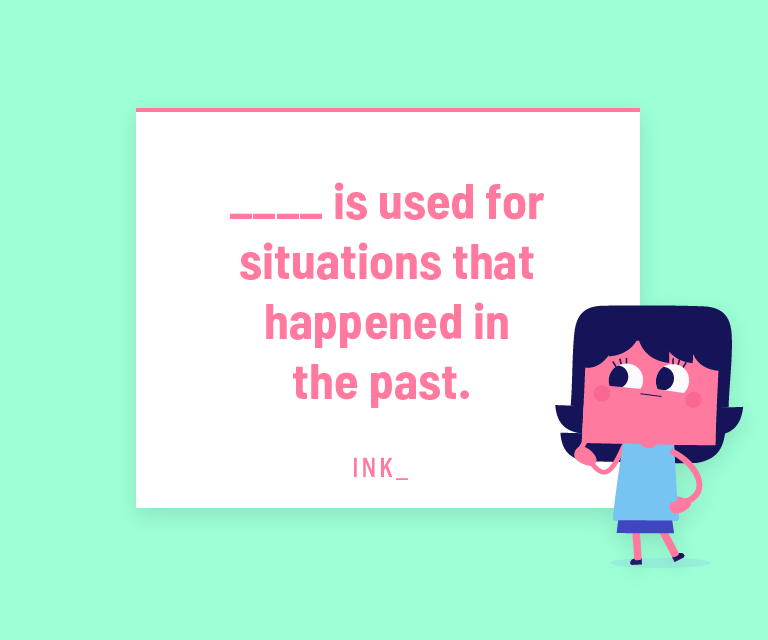

The answer is C. Either can be appropriate, depending on the subject-verb agreement.
Was or Were Question #8


The answer is WAS. The situation occurred in the past, and it’s in first-person singular.
Were or Was Question #9
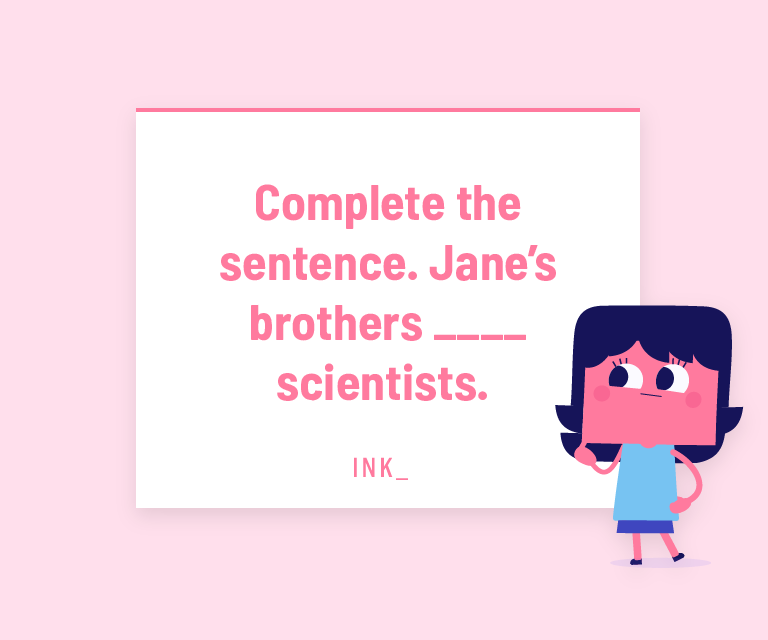

The answer is WERE. The situation occurred in the past, and it’s in third-person plural.
Was vs. Were Question #10
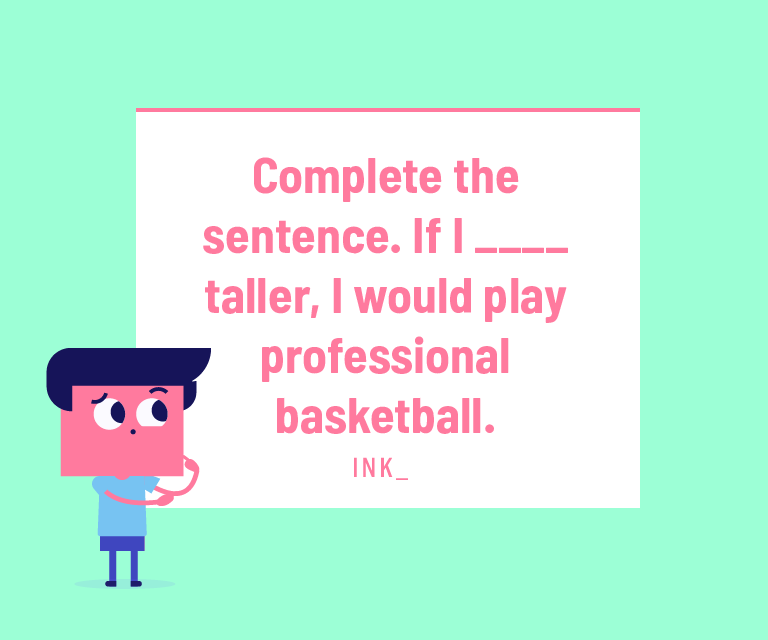

The answer is WERE. The situation is imaginary.
Were vs. Was Question #11


The answer is WAS. The situation occurred in the past, and it’s in third-person singular.
Was vs. Were Question #12
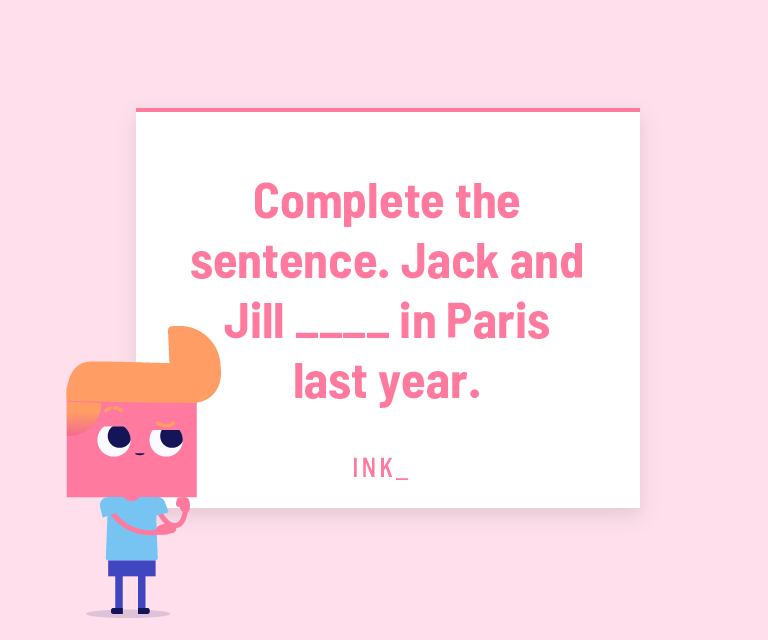

The answer is WERE. The situation occurred in the past, and it’s in third-person plural.


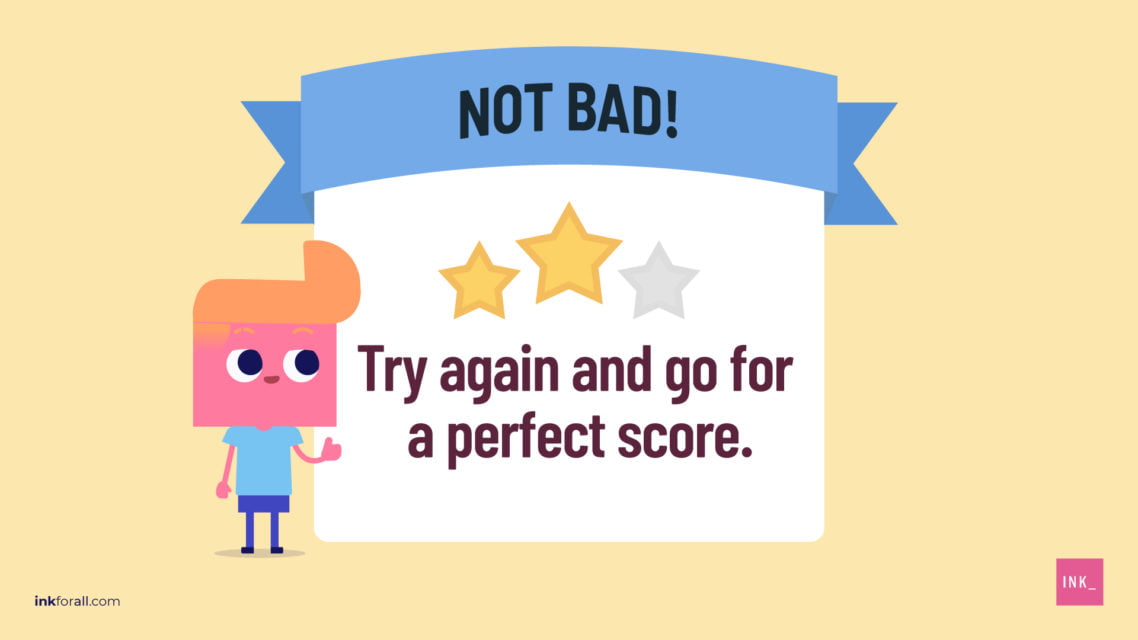

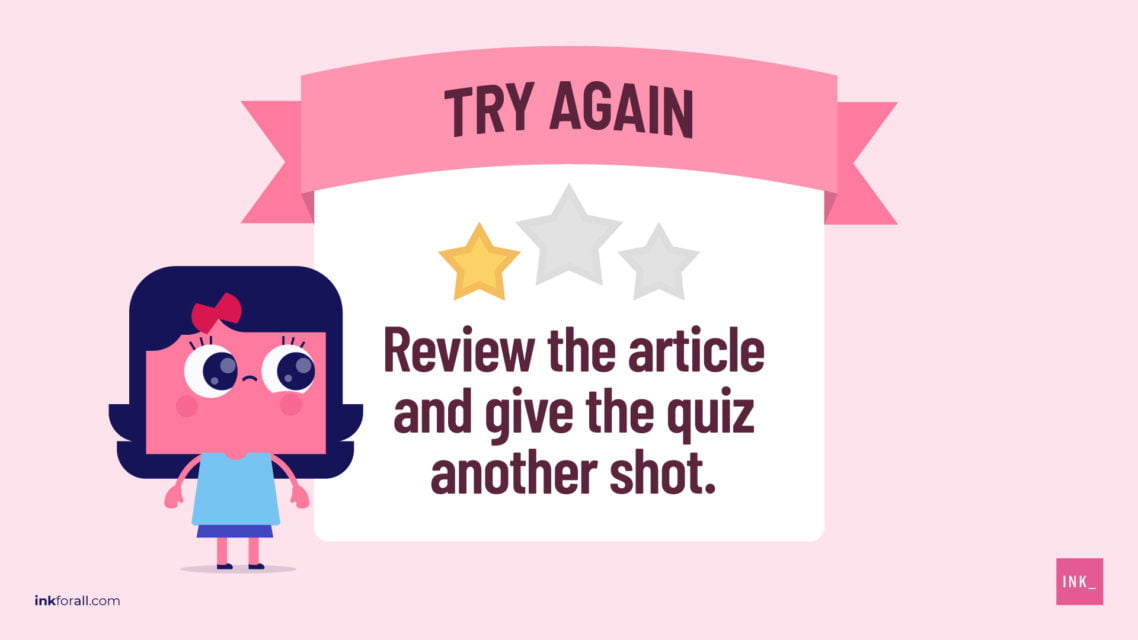


Comments (0)
Most Recent